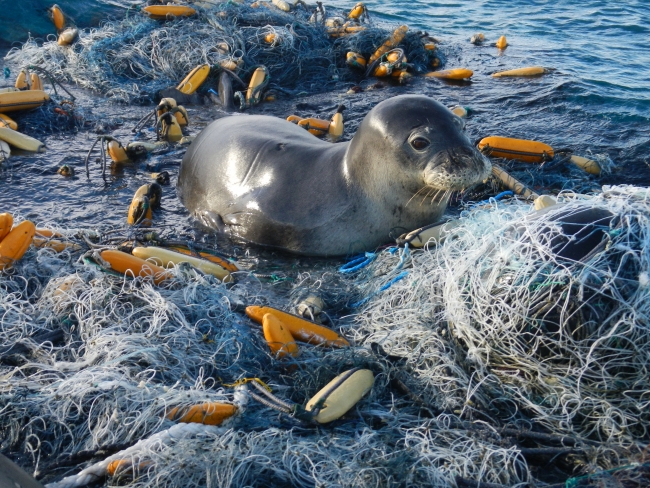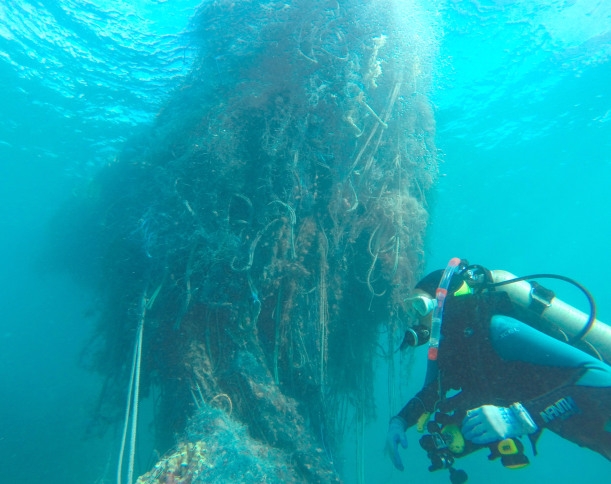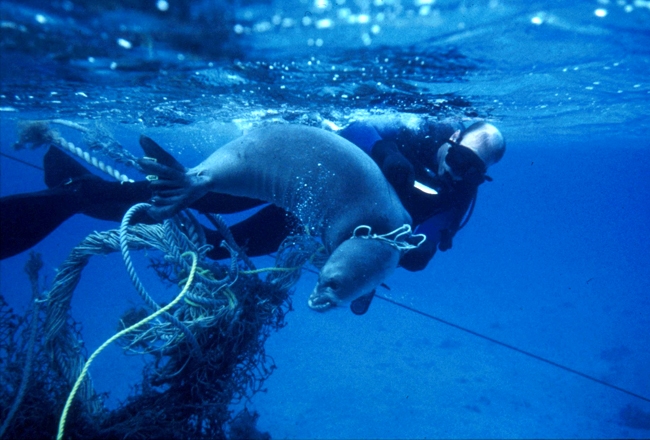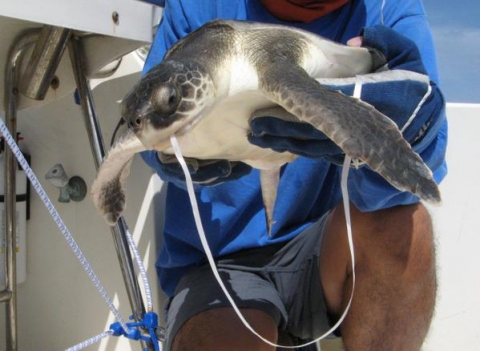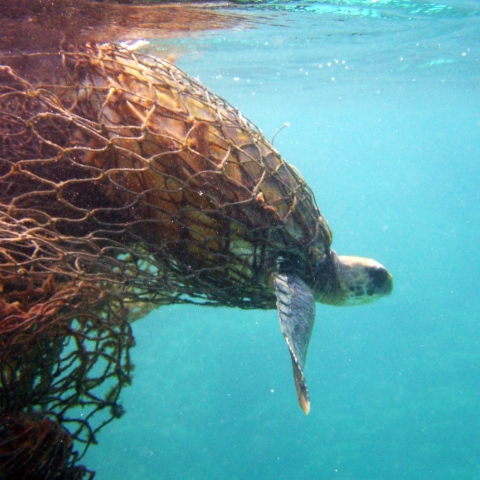Marine debris impacts a variety of wildlife that rely on the ocean and Great Lakes for food and/or habitat. Unfortunately, this includes many animals that are protected under the Endangered Species Act, including species of seals, turtles, whales, and even corals. Even if these endangered species are located within a protected area or far from people, they can still be impacted by this human-created problem, which travels the world’s ocean with the currents. For example, the Papahānuamokuākea Marine National Monument provides one of the last remaining refuges for the Hawaiian monk seal. Although it is extremely remote and far from large human populations, it is still heavily impacted by marine debris, which finds its way to the shores of the Northwestern Hawaiian Islands due to their location in relation to the currents of the Pacific Ocean.
Animals, including endangered species like the Hawaiian monk seal, can be impacted by debris in a variety of ways. They can become entangled in items like derelict fishing nets, or mistake trash for food and ingest it. All seven species of sea turtles have been found to eat marine debris—especially plastic bags, which can look a lot like jellyfish, sea turtles’ favorite snack. Heavy fishing gear and other debris can also damage or smother corals and important habitats.
Luckily, we can help protect endangered and threatened species by paying more attention to how we might be contributing to this problem. Marine debris is entirely caused by humans, but that means that people have the power to solve the problem, too! For instance, in the Northwestern Hawaiian Islands, NOAA crews have worked to remove 935 tons of marine debris since 1996! We can all help by following the “3Rs” to reduce the amount of single-use items we use, reuse items when possible, and recycle when we can. Spread the word to others so that they can help, too! Preventing marine debris is the ultimate solution to the problem, but to help address the stuff that’s already out there, join a cleanup near you or start one yourself using the Marine Debris Tracker app! We can all be a part of the solution to marine debris and part of the effort to protect our endangered and threatened species.
Happy Endangered Species Day!

